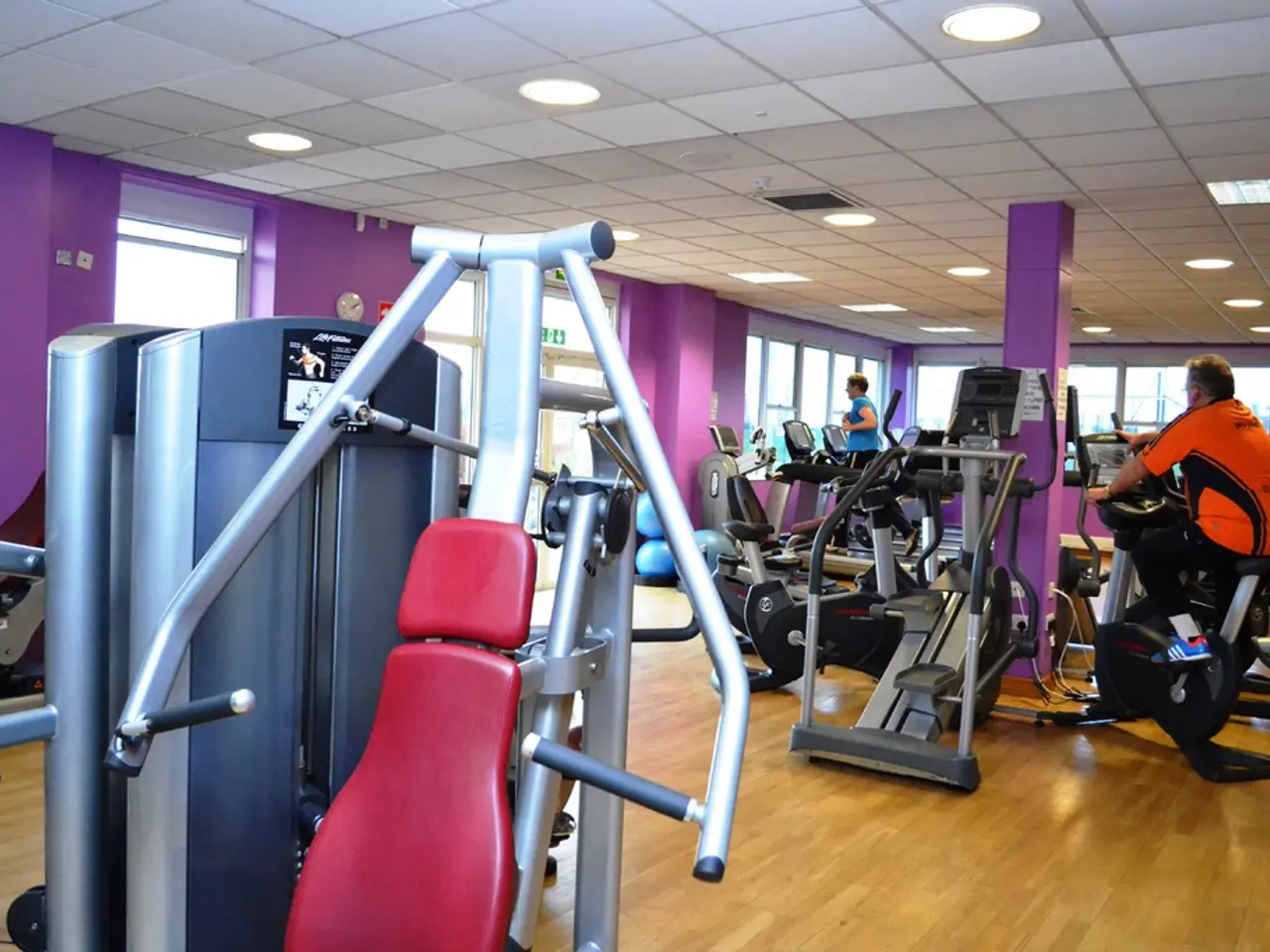Altering Your Work Space for Enhanced Cognitive Responsiveness?
A growing body of research suggests that our environment plays a significant role in shaping our physiological and mental state, as well as our cognitive performance. From adjusting airflow and cracking a window to using a fan, these simple adjustments can refresh our minds and improve our focus.
Moreover, environmental enrichment in the workplace can lead to improved performance on set-shifting tasks, according to a study by the University of Illinois in 2016. This finding is supported by other studies that show walking, especially in nature or novel settings, can significantly boost creative ideation scores, as demonstrated by research conducted at Stanford in 2020.
However, suboptimal temperatures and stale air can have a detrimental effect on mental performance. A study published in 2016 found that exposure to daily maximum ambient temperatures increased by 2°C can reduce cognitive gains in students by 7%. Furthermore, taking exams at high temperatures, such as 32.2°C, can lower the chances of passing and graduating significantly.
Environmental changes, particularly sustained exposure to elevated temperatures, negatively impact mental agility and cognitive flexibility by impairing learning capacity, reducing cognitive performance, and decreasing exam outcomes. Cognitive flexibility—the ability to adapt behavior to environmental changes—is fundamental for survival and relies on neurophysiological processes that are sensitive to environmental stressors.
Mental health can also be indirectly affected by environmental concerns, such as climate anxiety. However, evidence suggests that general climate concern may not causally impair mental health on average, especially if accompanied by proactive climate actions.
In light of these findings, adopting a flexible workspace can help mitigate these impacts and boost cognitive resilience. Cultivating an adaptive mindset involves moving away from fixed roles and environments to flexible, project-based work, encouraging continuous learning and skill development.
Flexible workspaces can enhance cognitive flexibility by providing varied environments that stimulate behavioral adaptability to changing demands. Using remote and hybrid work models reduces environmental stressors like commuting and office energy overuse and simultaneously supports employee satisfaction, which can improve cognitive function indirectly by lowering stress.
Practical tips to leverage flexible workspaces include designing spaces that allow for variable postures and workflows to encourage movement and prevent cognitive fatigue. Incorporating natural light and temperature control is essential to minimize negative impacts of environmental stressors on cognition. Encouraging diverse social and task interactions can foster psychodiversity—a range of thoughts and behaviors enhancing cognitive resilience.
Using hybrid models to balance on-site collaboration and remote autonomy supports mental agility and reduces environmental strain. Changing acoustic environments depending on the type of work can help improve output. Teams and leaders may enhance group productivity and engagement by using different spaces for brainstorming vs. analysis. Introducing small changes weekly can avoid overstimulation but maintain freshness.
In conclusion, environmental changes such as urban heat impair cognitive flexibility and mental agility, but adopting flexible, adaptable work environments with hybrid models, mindful workspace design, and support for continuous learning can help mitigate these impacts and boost cognitive resilience. This synthesis uses findings from studies on temperature impact on cognition, adaptive lifestyle frameworks, and recent insights into cognitive flexibility neurophysiology.
- Neuroscience reveals that our environment significantly impacts our physiological and mental state, influencing cognitive performance.
- Simple adjustments at work, like adjusting airflow or opening a window, can refresh our minds and improve our focus.
- Evidence from a study at the University of Illinois shows that environmental enrichment in the workplace improves performance on problem-solving tasks.
- Stanford research indicates that walking, particularly in nature or novel settings, can significantly boost creativity scores.
- Suboptimal temperatures and stale air in the environment can have detrimental effects on mental performance, as demonstrated by a study in 2016.
- Exposure to high temperatures can reduce cognitive gains in students and lower the chances of passing exams, according to a study published in 2016.
- To counter these effects, adopting a flexible workspace can boost cognitive resilience by encouraging continuous learning, supporting employee satisfaction, and minimizing environmental stressors.
- To leverage flexible workspaces effectively, incorporating natural light, temperature control, diversity in social and task interactions, and design elements that encourage movement can all enhance cognitive resilience and boost mental agility.




